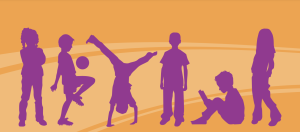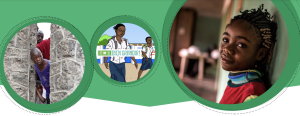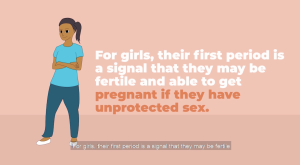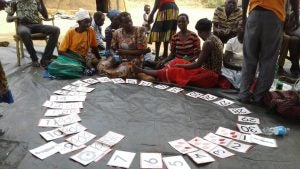Fertility Awareness | Resource Repository
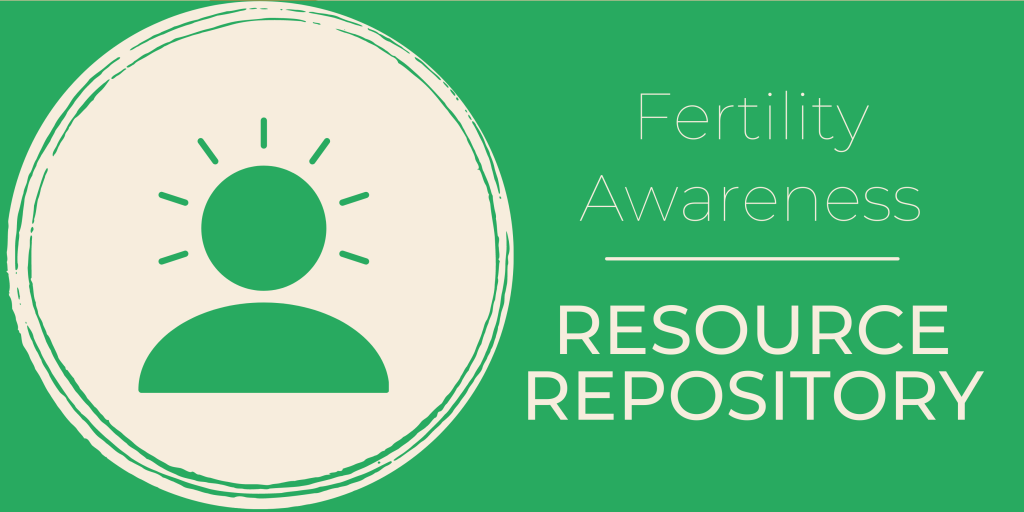
Fertility Awareness is actionable information about fertility throughout the life course and the ability to apply this knowledge to one’s own circumstances and needs. It includes basic information about the menstrual cycle, when and how pregnancy occurs, the likelihood of pregnancy from unprotected intercourse at different times during the cycle and at different life stages, and the role of male fertility.
This repository features fertility awareness interventions and tools developed and evaluated in a range of settings, which can be adapted for future programs. The evidence section provides additional context for why fertility awareness is an important topic to address in health programs.
My Changing Body: Body Literacy & Fertility Awareness for Young People (2nd Edition)
ENGLISH | FRENCH | SPANISH | KINYARWANDA
The purpose of the manual is to help girls and boys ages 10 to 14 years learn about the changes they experience as they approach puberty, and share information in objective and reassuring terms. What youth learn from this intervention can help them become more self-confident, practice good health habits and gain a positive self-image that contribute to their future sexual and reproductive health. The 2nd edition also includes My Changing Body for Parents, a companion curriculum, that enables parents to be more prepared to initiate conversations and support young adolescents through the changes of puberty.
GrowUp Smart
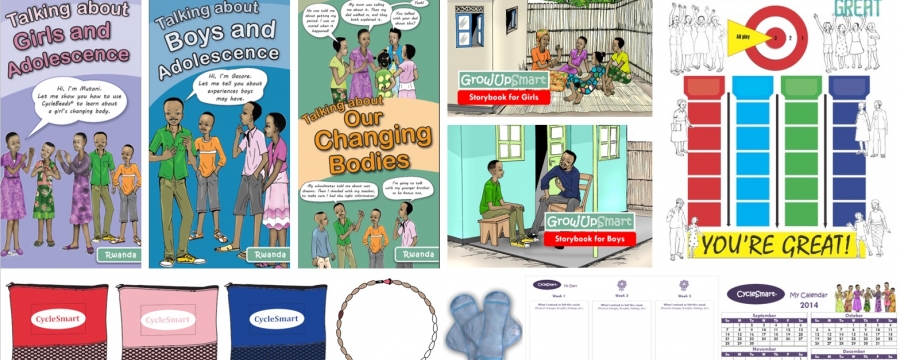
GrowUp Smart—an interactive puberty education program developed in Rwanda—was designed to increase knowledge about puberty and fertility, and to foster supportive attitudes and behaviors related to puberty and gender norms.
The curriculum is an engaging set of materials that introduces very young adolescents (VYAs) to sensitive topics such as puberty, fertility, gender, hygiene, safety, and communication. Each topic is explored over the course of nine interactive sessions of approximately two hours each. Sessions are supplemented by brochures, puberty storybooks, CycleSmart menstrual kits for girls, and a community game reinforcing curriculum topics. Two additional sessions target parents of participating youth and cover parent-child communication, sexuality and gender, puberty and sexual and reproductive health information.
This curriculum drew from previous interventions such as CycleSmart, Growing up GREAT!, and My Changing Body, and ultimately became a new approach that was validated and tested by VYAs, parents, facilitators, and policy makers.
Download the GrowUp Smart resources here:
Pragati: Community Games to Increase Fertility Awareness & Family Planning Use
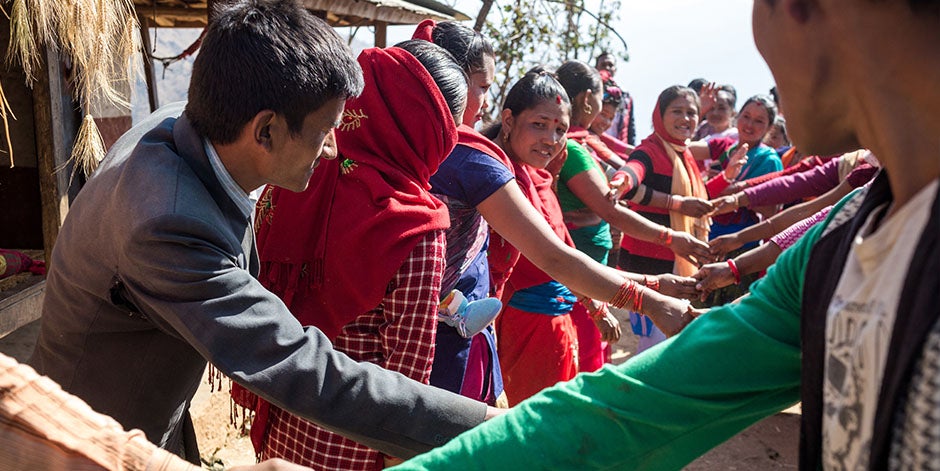
Working through existing social networks, Pragati is a social and behavioral intervention comprised of nine games to diffuse information about fertility awareness and family planning to individuals, catalyzing conversation with others. Games and topics are introduced and facilitated by influential community partners who are well-positioned to share information and promote reflection among their own family members and peers. The games utilize adult learning techniques that challenge negative social norms in non-threatening ways to facilitate change. This intervention was implemented in five districts of Nepal (Bajura, Nuwakot, Pyuthan, Rupandehi, and Siraha).
The Pragati materials include: 1) a manual which highlights simple steps for organizing and facilitating the games in communities; 2) game materials with instructions and activity cards to use during implementation and facilitation; and 3) a resource packet including materials related to orientations, coaching of community health volunteers, and monitoring of planned activities.
Explore the Pragati Manual and all supporting resources HERE.
Watch the Pragati micro-documentary. The video was filmed in the five districts of Nepal and highlights Pragati’s approach and community members’ experiences with the games.
..
CycleSmart™
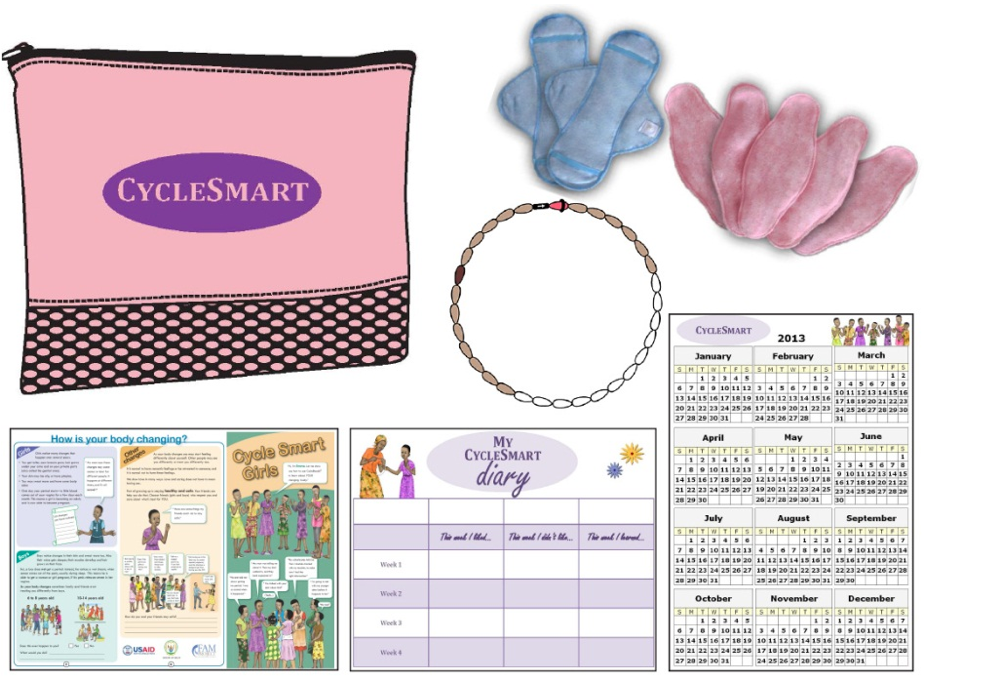
CycleSmart™ is a package of tools tailored to girls ages 10-14. It was developed and tested in collaboration with youth-serving organizations in Rwanda and Guatemala and is based on research conducted with adolescents, their parents, and their communities. The Kit includes CycleBeads (the color-coded beads typically used with the Standard Days Method of family planning that can also be a visual and tactile way of teaching girls about menstruation and fertility); a calendar; a weekly diary; reusable/washable sanitary napkins; and a country-specific brochure called CycleSmart, which includes topics like the menstrual cycle, puberty-related changes, risk of pregnancy, gender norms, and safety tips. The CycleSmart™ Brochure uses young protagonists, games and storytelling to convey information related to tracking, understanding, and preparing for the menstrual cycle and puberty, and tips on staying safe. Evaluation results show that CycleSmart is a useful tool for teaching boys and girls about puberty and fertility.
CYCLESMART IMPLEMENTATION GUIDELINES
To provide parents, educators, youth-focused organizations, health providers, religious leaders and others with tips and resources on how to use CycleSmart and how to talk to boys and girls about puberty and fertility, download the CycleSmart Programmatic Guidelines (available in English, Spanish, and Kinyarwanda).
CYCLESMART KIT
Download the components of the CycleSmart kit:
- CycleSmart Brochure ENGLISH/US | ENGLISH/RWANDA | KINYARWANDA/RWANDA | SPANISH/GUATEMALA | SPANISH/US
- CycleSmart Calendar Template ENGLISH | FRENCH
- Weekly Diary ENGLISH | FRENCH
- Images from the CycleSmart Brochure are available as separate files for the African context should they need to be used to create additional materials.
CYCLESMART FINAL REPORT
The final report detailing how IRH collaborated with youth-serving organizations in Rwanda to develop, validate, and evaluate the CycleSmart Kit is available HERE.
Growing Up GREAT!
Growing Up GREAT! is a scalable, multi-level intervention designed to improve reproductive health and gender equity among very young adolescents and the important adults in their lives. It supports very young adolescents and their communities to question and break down the social barriers that prevent access to health information and care. The intervention applies an ecological perspective addressing spheres of influence—individual, family, school, community—that most affect early adolescent life experiences.
It consists of:
The Growing up GREAT! Implementation Guide, a step-by step resource for organizations who wish to adopt the intervention. It provides users with guidance, tested tools, and materials for planning, implementing, supervising, and monitoring this successful norms-shifting intervention.
The Growing Up Great! VYA Toolkit (an annex of the Implementation Guide), which is an age-appropriate, gender transformative intervention package that provides both in-school and out-of-school very young adolescent (VYA) girls and boys aged 10-14 years with accurate information about sexual and reproductive health (SRH), and fosters discussion about related social norms. The materials, in French, include:
- Growing Up GREAT! Puberty Books
- Growing up GREAT! Flipbooks
- Growing up GREAT! Activity Cards
- Growing up GREAT! Gameboard & Question Cards
Video Contents for Very Young Adolescents
Under the Passages Project, and in collaboration with AMAZE, the Sexual Reproductive Health and Rights (SRHR) Alliance worked with a Youth Advisory Committee to develop video content with fertility awareness messages. Four videos aimed at supporting very young adolescents understanding of puberty changes were produced. Use of the videos with adolescents include in- and out-of-school youth group discussions facilitated by peer educators and diffusion through social media, television, radio, in community theaters, and in youth friendly corners at health centers. The videos include:
- “Puberty and Development” normalizes changes caused by hormones, including mood swings, sexual feelings, and other emotional and mental changes that accompany puberty. The video also discusses typical teenager anxieties, such as friendships and relationships.
- “Access to Sexual and Reproductive Health and Services” revolves around reproductive health services available for adolescents at local clinics in Uganda. Such services include counseling, checkups, puberty concerns and menstrual health management, testing for STIs, and pregnancy.
- “Teenage Pregnancy: Risks and Prevention” centers around a sexuality education class, where a friendly and non-judgmental individual responds to adolescents’ questions and concerns regarding teenage pregnancy, its risks and how to prevent it. The messages provide details on how to prevent pregnancy, through awareness of fertility, sexuality education, contraception, and abstinence.
- “Menstrual Health Awareness” focuses on a family discussion about periods and menstrual health. The mother explains what menstruation is, how often periods come, and how to handle monthly bleeding, menstrual cramps and mood swings that often accompany periods, including information on menstrual products and hygiene. Explaining to both the young girl and boy helps spread the message that knowledge about menstrual health is an important topic for both girls and boys, and helps to address persistent myths and misconceptions.
A programmatic brief about these videos is available HERE.
Evidence & Experience
LITERATURE REVIEW & MEETING REPORT
- A Comprehensive Literature Review: Fertility Awareness Across the Life Course ENGLISH This literature review was prepared for a technical consultation on fertility awareness held by IRH in July 2013. Literature on fertility awareness was identified and the findings and trends regarding how fertility awareness knowledge, or lack thereof, appears to influence sexual and reproductive health attitudes and behaviors across the life course were analyzed. Findings and lessons learned from interventions and programs that have incorporated a fertility awareness component were also documented.
- Meeting Report: Let’s Talk About Fertility Awareness ENGLISH In July 2013, the Institute for Reproductive Health at Georgetown University (IRH) held a technical consultation on fertility awareness and its impact on sexual and reproductive health (SRH) outcomes. The key objectives of the consultation were to: (1) define fertility awareness, (2) assess the evidence of the effect of fertility awareness on SRH attitudes and behaviors across the life course, (3) explore how fertility awareness could contribute to SRH program goals, and (4) identify the knowledge gaps that could be addressed by future research.
PROGRAM BRIEFS
- Engaging Youth through Fertility Awareness: A Series of Video for Youth ENGLISH
- Participatory Fertility Awareness Intervention to Increase Family Planning Acceptability and Use (Pragati) ENGLISH
- Meeting the Needs of Very Young Adolescents (VYA) in Rwanda ENGLISH
- Meeting the Needs of Very Young Adolescents (VYA) in Guatemala SPANISH
- Empowering Young Adolescents through Body Literacy and Fertility Awareness ENGLISH
GUIDES
- Fertility Awareness & Body Literacy ENGLISH Around the world misconceptions exist about sex, menstruation, pregnancy, and family planning. This guide, developed under the FACT Project (2013-2019), explains how integrating fertility awareness into social and behavior change (SBC) activities and programs can improve health and wellbeing.
- Facts for Family Planning Handbook ENGLISH This handbook presents a comprehensive collection of key information and messages that anyone can use who communicates to others about family planning. It contains ten easy-to-read chapters, and Chapter 6 focuses on Fertility Awareness.
ARTICLES & BLOGS
- Fertility Awareness as Power: Why accurate information is important LINK
- “Take it as your own”: Working with parents and communities to support VYAs to GrowUp Smart LINK
- What’s stumping us: A snapshot of what we know about fertility LINK
- Supporting the next generation to take control of their fertility LINK
- Do YOU know more about your body than a 12 year old? LINK
- Supporting Very Young Adolescents as They GrowUp Smart LINK
- Sharing reproductive health knowledge with a new generation LINK
 Where We Work
Where We Work  Press Room
Press Room  FACT Project
FACT Project  Passages Project
Passages Project  Learning Collaborative
Learning Collaborative  Search All Resources
Search All Resources  Social Norms
Social Norms  Fertility Awareness Methods
Fertility Awareness Methods 